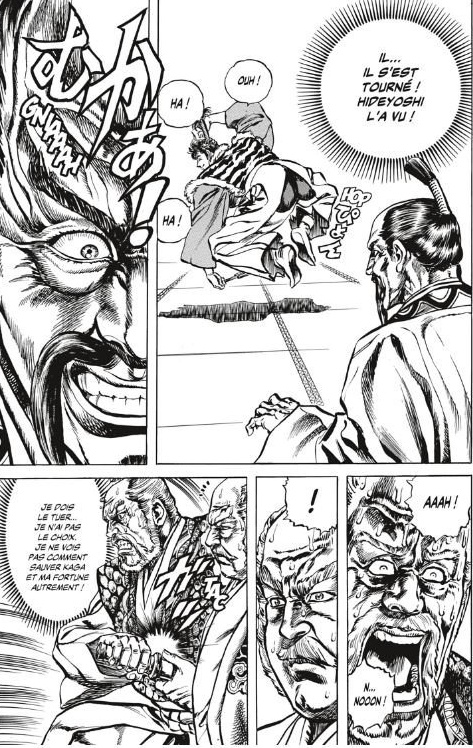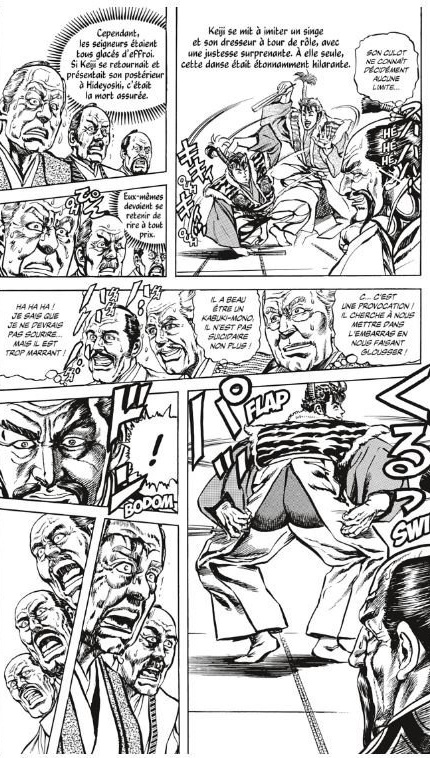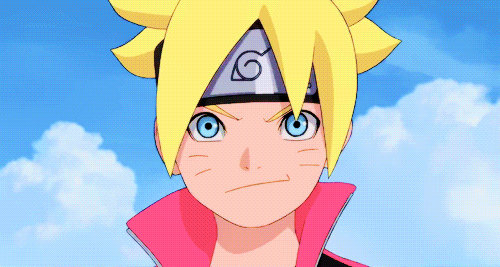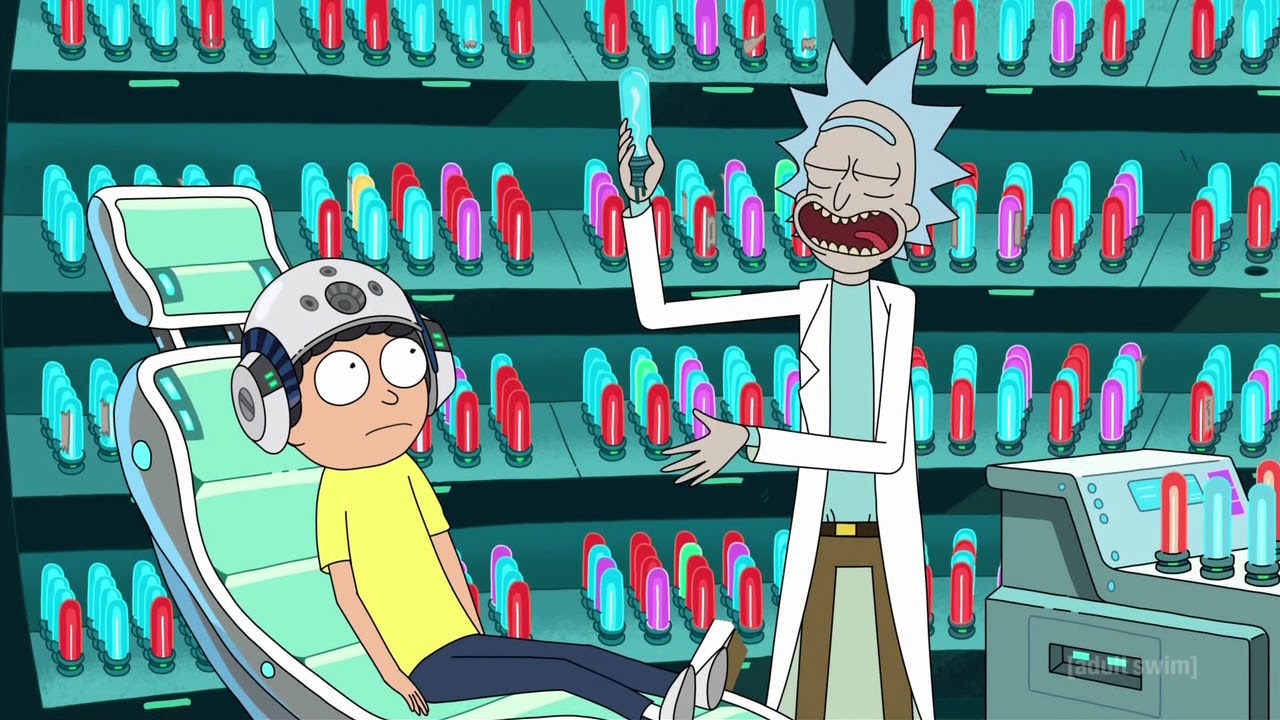Keiji's arrival in Edo was sensational, but until now, the samurai had remained far from power. In this new volume published by Mangetsu, theessinator Tetsuo Hara, the screenwriters Keiichirô Ryû and Mio Asô bring the uncontrollable samurai into the mysteries of power. Will he know how to adapt to the strict codes of the palace?
An elephant in a power game

Coming to the capital to meet Hideyoshi, Keiji is finally received at the palace. This meeting is decisive for his career, but also for the fragile destiny of the Meada clan. Far from being intimidated, the hero wants to maintain his lightness and freedom. He is supposed to submit to the new regent, but due to his past and the exuberance of his character, Keiji refuses to bow. Indeed, he came to kill Hideyoshi.
The previous volume ended with an intense cliffhanger. The kabuki-mono had found a way to avoid lowering himself by changing his haircut: his oversized ponytail lowered before the lord, but not Keiji. We feared the worst, but himself a former kabuki-mono, Hideyoshi laughs about it and even grants him a kabuki gomen, the right to be released from the many engagements borne by the other samurai.
This pass allows him to avoid death. His uncle can no longer kill him without incurring the wrath of the regent. Paradoxically, however, Keiji still wants to kill the regent. But, since the houses of the princes are riddled with traps, he must devise plans so convoluted that they become funny for the reader. He becomes a pathetic dancer imitating a monkey, also spreading his political message against the regent.
But, this volume six also finds fights as improbable as taking. On horseback Keiji faces thirteen riders alone. This character is twofold: a cold fighter and a cheerful kabuki-mono. On the one hand, he builds complex plans and knows how to wield the sword. On the other hand, he lives an impossible love story and admires a cherry blossom. He hates the vanity of duels, but loves ostentation of dress. He kills out of honor, but without pleasure.
Honour and blood

The series demonstrates that the code of honor remains the most important for high society. It is necessary to defend one's status against other groups, but also within the clan when ambition makes you forget the rules. A skilled tactician, Keiji nevertheless knows how to get out of business of honor with talent and humor. For this, he is helped by his assistant who proves his talents as a scout … and makes the dogs talk. This code is also a façade, because all these powerful men are former soldiers who have trouble keeping their blades in the sheath.
Even if this is not the main goal, the reader discovers this historical period. The country being at peace, military conflicts have become conflicts of precedence or respect. Some lose their lives and others their honour. The generation of first combatants has now become the dominant social group and regrets its military youth. She never ceases to refer to it to draw lessons in morality. It is a way for the screenwriter to go back into the complex past of these powerful or on the contrary to shed light on their current motivations.
This sixth volume proves the comic qualities of Keiji, because he gets out by several pirouettes of a situation a priori impossible. But this is just the beginning. As it becomes more popular, it also becomes an increasingly obvious and accessible target. How will this already very arrogant hero manage this growing and dangerous fame?
You can discover the beginnings of the series in this article as well as the previous volume.








































